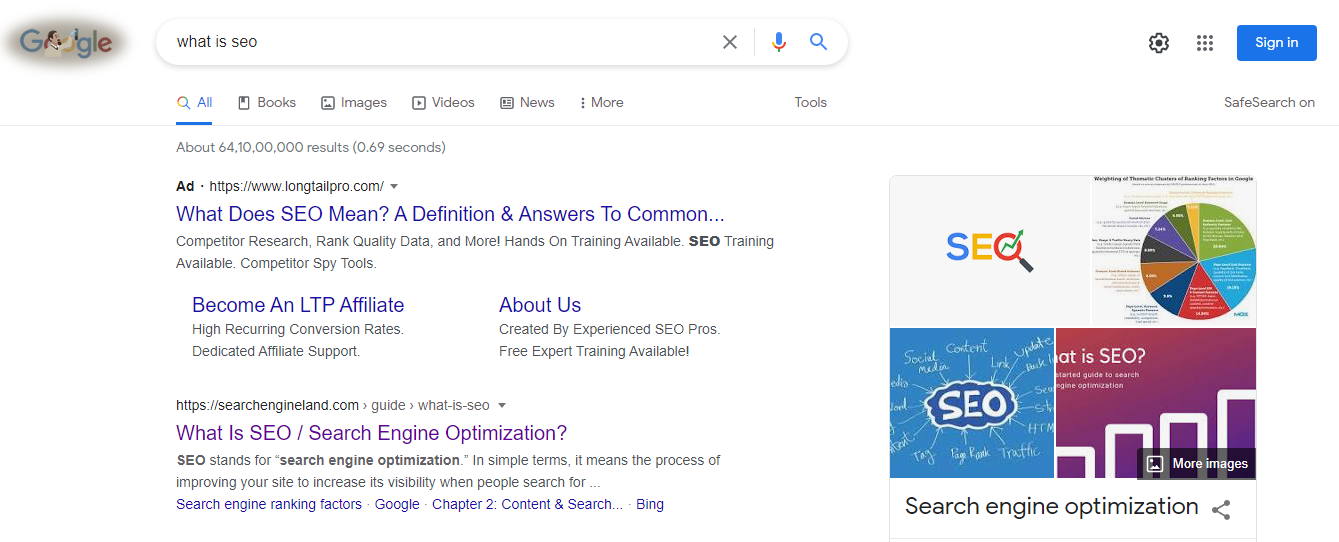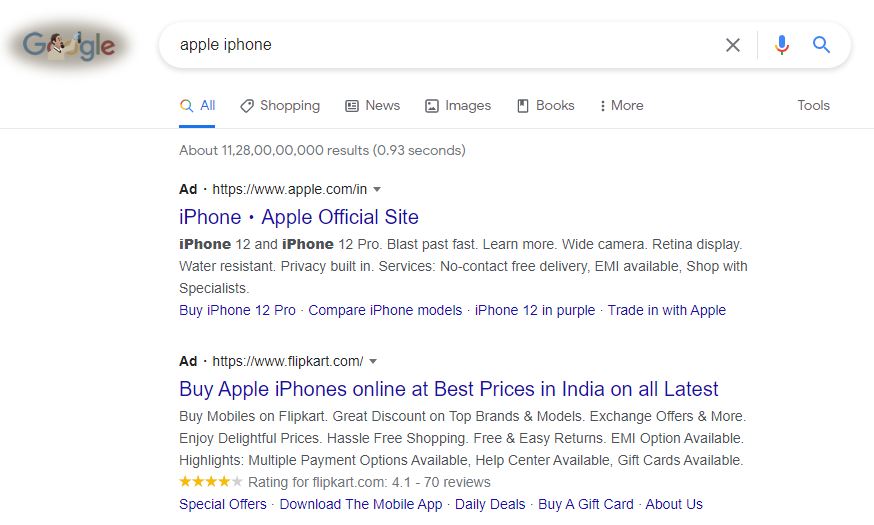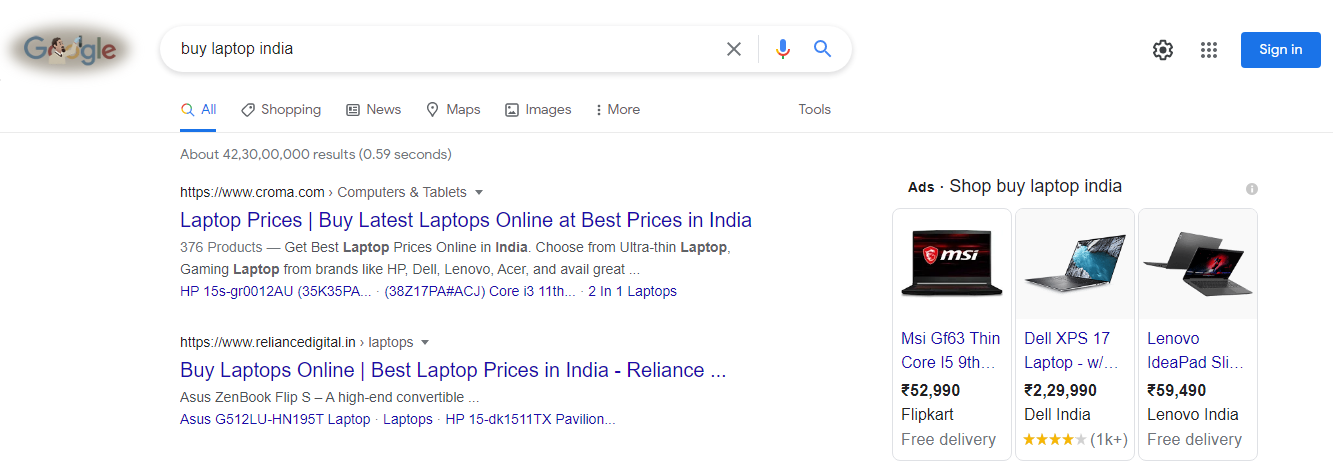Optimizing content for different types of search keywords is a key to convert leads to sales. With the rapidly changing consumer behavior, Google algorithms are constantly being updated to bring the best possible matches of the search keywords.
To provide a good user experience and drive maximum traffic to your site, it is imperative to target the right keywords that match the searcher’s intent. Hence, understanding about the types of search keywords can improve your chances of showing up on the first page of Google search results. In this post, we will discuss about the meaning of search keywords and different types of search keywords.
Page Contents:
What are Search Keywords?
Search keywords represent the search queries that people enter on a search engine field. These are words or phrase that people type into a search field to get relevant solutions to their questions. Keywords act as a bridge and helps to connect the searchers to a website.
The proper usage of keywords into your content will improve your website’s visibility in the search results and enables you to gain traffic at a fast pace. They play a crucial part of a SEO strategy and are used by content marketers and website owners to maximize their website visits and click through rate.
When the content published on a blogpost is aligned with the search intent and right keywords, the chances of ranking on the topmost search results increases rapidly. It also signals search engine about the webpage content thereby helping in better indexing and ranking the site.
Different types of Search Keywords
Customers go through these three phases of a buyer’s journey. These include:
Informational keywords:
People mainly use these keywords to search for particular information. Informational keywords contain question words such as where, how, which, etc. The buyer is ready to learn about a topic, problem, product or service and use informational keywords to search for their queries.
Informational keywords are also known as “know” keywords. There are two types of informational keywords – problem solving and research based keywords.
A problem solving keyword caters to the question of how to solve a particular problem and should have a combination of written content and video to rank high in SERPs. A research based keyword caters to the question of ‘what’ and provides detailed information on a particular topic or niche. Example of informational keyword:
With the help of a keyword research tool, you can generate best informational keywords related to your business requirements and niche. It is advisable to create content that is positioned around informational words and phrases.
The best way to target informational keywords is to create high-quality SEO content that provides accurate information that best matches the search query. You can add these keywords into your blog posts, infographics, checklists, guides, etc. Use informational phrases such as:
- How do/does
- What is/are
- Ways to
- Guide to
- How to
- Tutorial
- Best
- Cheap
- Affordable
- Compare
- Top list
- Most
Navigational keywords:
Navigational keywords are entered with the intent to find a particular website. At this phase of a buyers’ journey, customers are aware of their requirements and research to see if it is the right choice for them. These keywords are useful when the brand is reputed and popular.
It is mainly used to find specific website, product or service. For example, a user might enter “youtube” in the Google search field to visit youtube site instead of entering the site URL into the browser tab. Example of Navigational keyword:
At this phase, customers have collected the information and are ready to research for a specific products, services or brands. Navigational keywords are also known as “go” keywords as they help customers to get to a website and explore. The search queries may include a large number of brand-specific terms and navigational phrases such as:
- Location
- Near me
- Brand name
- Product name
- Service name
- Features of
- Cost of
- Operating hours of
- Directions to
- Reviews of
- Prices of
- Customer testimonials
As the buyer is looking for specific and relevant information, it is crucial to target branded keywords that help them find your website, products and services. Some of the content options that works best for navigational queries are creating landing pages, case studies, product demo videos, webinars, e-books, etc.
Transactional keywords:
In this phase, a buyer is ready to make a purchase. It is the last phases of a buyer’s journey when a customer decides whether they want to buy, download, and purchase a product or service.
These keywords are related to brand name, product name or generic keywords such as ‘buy’, ‘subscribe’, ‘sale’, ‘purchase’, etc. These keywords are more specific than the general keywords as they describe the product and service in a precise manner. Example of Transactional keyword:
Transactional keywords are also known as “do” keywords as the buyer is ready to take an action. Transactional keywords may include phrases such as:
- Discount
- Deals
- Apply
- Buy
- Coupons
- Order
- Purchase
- Schedule Appointment
- For sale
- Download
Using these keywords helps to generate leads and create conversions. It is advisable to create content that includes sign-up pages, live demos, consultations and sales pages.
Vertical searches that target transactional keywords of a specific industry are also included in the transactional search queries. Some example of vertical searches are local searches, restaurant searches, flight searches, hotel searches, etc.
How Serpok helps in Google SERP Optimization?
A well-planned keyword research includes the knowledge of using the right search keywords as per a specific query and the target audience requirements. Understanding the types of search keywords helps you in making the best decision in your content marketing strategy and keyword mapping process.
Optimize your site and connect in every phase of the buyer’s journey by using Serpok services. Serpok makes Google SERP optimization an easy task and help you achieve higher rankings on search results. We are here to help you provide a seamless user experience and identify the best keywords customized to your business requirements. Try Serpok and get expertise help exactly suiting your industry needs. Sign up and Explore!


